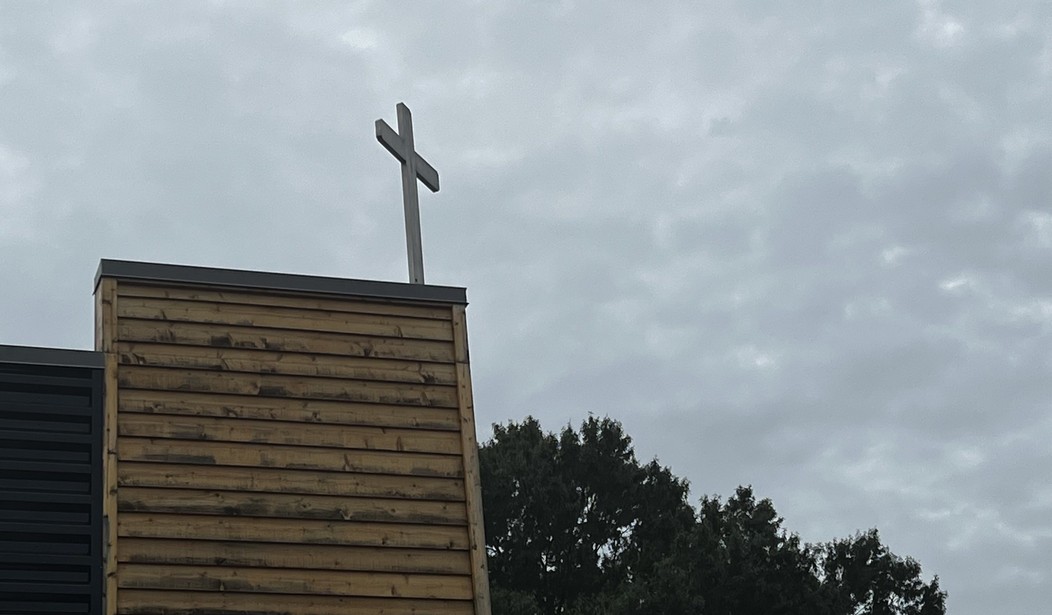Dear Ana Marie Cox,
Like countless others, I read your essay “Why I’m Coming Out as a Christian” with mixed emotions. At times you encouraged me, baffled me, and infuriated me, but at the end, I walked away satisfied, knowing that, even though you and I may not agree on everything (or much at all, maybe?), you and I are on the same side of the ultimate decision of all: the decision to follow Jesus Christ as our Lord and Savior.
You impressed me most with some of your elegant descriptions of faith:
In my personal life, my faith is not something I struggle with or something I take particular pride in. It is just part of who I am. […] I try, every day, to give my will and my life over to God. I try to be like Christ. I get down on my knees and pray. […] Here is why I believe I am a Christian: I believe I have a personal relationship with my Lord and Savior. I believe in the grace offered by the Resurrection. I believe that whatever spiritual rewards I may reap come directly from trying to live the example set by Christ. Whether or not I succeed in living up to that example is primarily between Him and me. My understanding of Christianity is that it doesn’t require me to prove my faith to anyone on this plane of existence. It is about a direct relationship with the divine and freely offered salvation.
A perfect world would greet your essay with the same fanfare it greets people who make all sorts of declarations about their personal life, but as believers in Jesus, you and I both know that the world we live in is far from perfect.
Like my colleague, Jon Bishop, I thought that sharing my experiences might add to the conversation. I grew up in the church — there has never been a time in my life when my family wasn’t actively involved in church. The church we attended from the time I was a child until my 11th-grade year was a Christian Church. Though they claim not to be a denomination, and there is no hierarchy like a denomination, there’s a doctrinal hegemony within much of the Christian Church, and the congregations share common educational institutions and mission organizations.
In the church where I grew up, I often heard the saying, “In essentials, unity; in non-essentials, liberty; in all things, love.” Yet this congregation didn’t practice much unity — in fact, every three years or so a big blow-up would take place which would set the church back in many ways.
(It may be worth noting here that such schisms dot the timeline of the Restoration Movement, which began during the Second Great Awakening in the 19th century and produced the Christian Church, as well as the more liberal Christian Church [Disciples of Christ], the Church of Christ [both the congregations who use musical instruments and those who don’t], and the Evangelical Christian Church in Canada. Disputes over organization, worship style, and theological liberalism have led to splits within the movement over many years.)
During one of those blow-ups at my home church when I was 16, my family along with about half a dozen other families set out to start a new congregation, one that was truly independent. We saw a need that was lacking in our community and sought to meet it by providing a casual, contemporary worship experience in a theologically conservative setting.
We maintained the loosest of ties with the Christian Church, largely because our pastors and earliest members came from that tradition, but also for the sake of camps for children and students, as well as missionaries. We’ve also kept a few of the Christian Church’s traditions — taking the Lord’s Supper every Sunday and an emphasis on baptism by immersion (though, while the Christian Church considers baptism essential to salvation, we don’t believe that baptism saves an individual — we do consider it a requirement for church membership and an important sacrament for a new believer to undertake).
After 25 years, give or take a few months, Eastridge Church has refined its mission — the mission God gave us — to make disciples who love God, love people, and reach the world. We have served our community in countless ways and sent members on mission trips to Mexico, China, India, Honduras, Ethiopia, and Rwanda. We’ve become a multi-site church with a second campus in the southern area of our home county, and we sponsor churches in India.
One of the most remarkable features of our history is that, other than one change in leadership, we’ve remained largely unified with no splits (save an exodus of some members surrounding that leadership change). It’s the kind of unity that can only come from a congregation that is committed to following God above any other agenda.
How has Eastridge shaped me? It’s where I learned how to serve selflessly, where I developed many of my creative talents and leadership skills. The church has taken me to Mexico to build houses — twice. I’ve been discipled and I’ve discipled others. I love Eastridge so much that I spend six years on staff and recently came back on staff!
Without the involvement in and support from an independent, non-denominational church for a little over 25 years, I wouldn’t be the man of God that I am. I truly believe that, and I’m grateful that He’s allowed me and the rest of my family to experience these years at Eastridge.
Sincerely,
Chris Queen










Join the conversation as a VIP Member